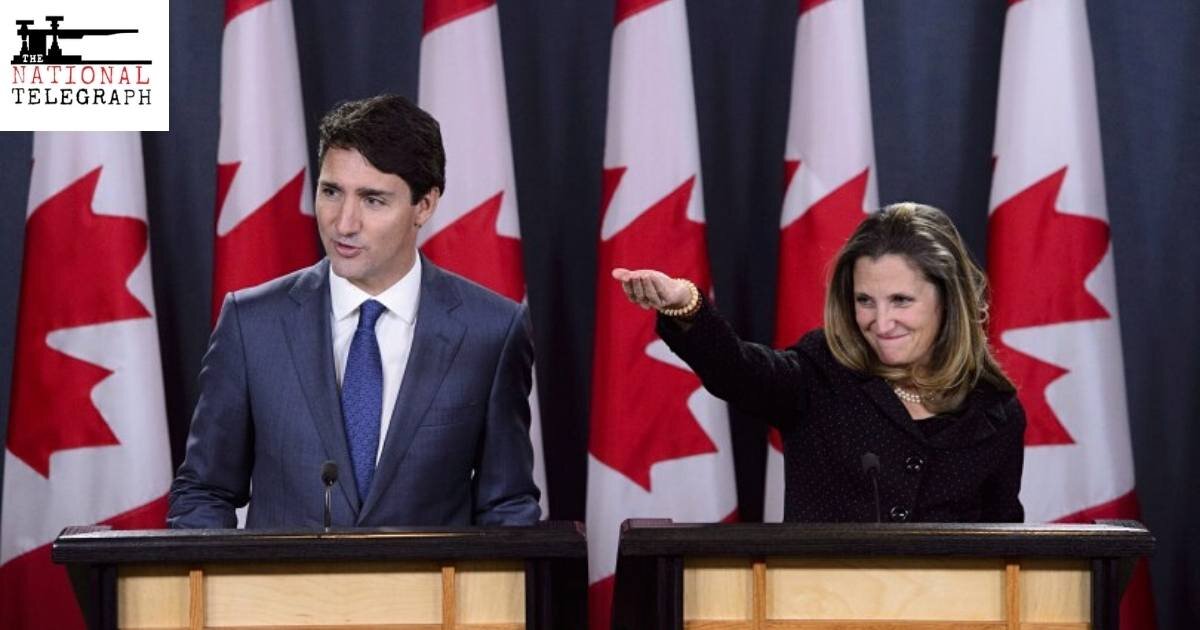Written By Wyatt Claypool, Posted on March 10, 2021

Canadians can usually expect the federal government to present in February or early March each year, especially after a government has been in power since 2015, but the Liberals are taking their sweet time with the 2021 federal budget.
The next fiscal year starts on April 1 and MPs have been given no indication of what the budget is going to look like, outside of the fact that everyone at this point expects a Liberal government to run a massive deficit, and the longer the time it takes to present the budget the less fiscal restraint is to be expected.
Blowing out the deficit to try and stimulate the economy, weighted down and hurt by federal and provincial government lockdowns, seems like a predictable move on behalf of the Liberals, especially as Prime Minister Justin Trudeau is looking to pursue a snap election in 2021 in order to win back his majority government.
The Liberals likely want to cut the NDP and the Green Party off at the pass by spending more like their more socialistic opponents so that in an election cycle Jagmeet Singh and Annamie Paul will have no credibility accusing Trudeau of spending too little on government programs, although they will still try.
This of course won’t be good for the Canadian economy but quality of policy and moderation of spending doesn’t tend to be granted much importance while politicians are doing political maneuvering for election readiness.
MP Pierre Poilievre of course summed up Trudeau’s image-based spending strategy better than anyone else could.
Politicians love to brag how many billions they spend on a given problem.
Just because something costs more doesn’t mean it achieves more.
Judge results.
Costlier ≠ better. https://t.co/Bc9Z1f1Ut3
— pierrepoilievre (@PierrePoilievre) March 10, 2021
Another concern that comes with the Liberals coming budget is whether or not the Liberals will also pursue a plan to tax Canadians’ savings directly to try and unlock funds to stimulate the economy.
Chrystia Freeland the current Deputy Prime Minister and Finance Minister has in the past spoken affirmatively about looking for ideas to unlock “pre-loaded stimulus” which was a reference to taxing savings in a roundabout way.
(Photo from AP News)
The Liberals may not release any plans to pursue taxing Canadians’ savings in their 2021 budget, especially because that would hurt their polling going into an election, but the budget may set the stage for the Liberals taxing savings when their stimulus plan inevitably fails to deliver, like all past government stimulus plans have.
Another aspect of the budget that should be concerning the majority of non-Marxist Canadians is the Liberals’ focus on identity politics in their new budget.
On March 8 the Liberals launched The Task Force on Women in the Economy (TFWE) which will have influence over the 2021 budget in order to combat what Trudeau had dubbed the “she-cession” (rather than recession).
Description of the TFWE on the Government of Canada’s website.
Back in September of 2020 Trudeau also announced that the government would be creating a specific fund to provide financial assistance to black business owners because as Trudeau put it Canada has “existing systemic barriers faced by Black entrepreneurs” without naming what the systemic barriers were or why he hasn’t already removed those systemic barriers seeing as he is the Prime Minister.
(Photo from The Toronto Star)
This coming budget more than most will be filled with this sort of identity-based form of virtue signaling. It is already a known fact that Liberals will blow out the spending, but it will be interesting to see all the strange programs the Liberals choose to fund in order to virtue signal going into the next election.
This budget more than most will have the singular goal of pushing the Liberals polling numbers up, and the longer it takes for the Liberals to finally release it, the more likely spending is added in a calculated effort to indirectly buy popularity.
Wyatt is a student at Mount Royal University, where he is the president of its Campus Conservative club. In his writing, he focuses on covering provincial and federal politics, firearms regulation, and the energy sector. Wyatt has also previously written for The Post Millennial.
Very well presented. Every quote was awesome and thanks for sharing the content. Keep sharing and keep motivating others.